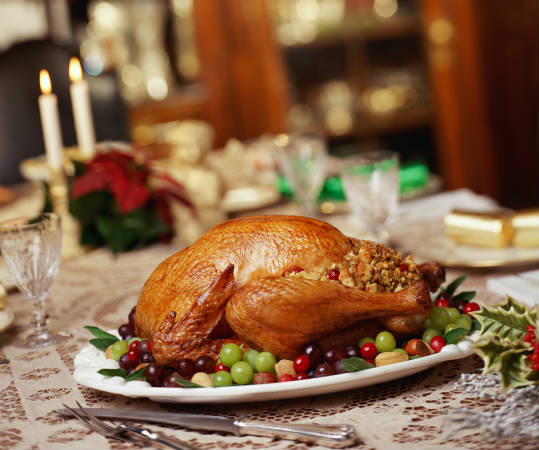Attention ladies; even if you think you’re a fitness and diet guru, we guarantee you’ll be making some of these health mistakes without even realising it.
Cut out these bad habits and you’ll be healthier before you know it.
 Unhealthy friends?
Unhealthy friends?Having unhealthy friends
Who you’re friends with can have a big influence on your health without you even realising.
Research published in the New England Journal of Medicine compared obesity to a virus. When your friends gain weight, you’re more likely to gain weight yourself.
That doesn’t mean you need to ditch your friends as soon as they put on a couple of pounds – study author Dr Nicholas Christakis suggests instead taking cues from your healthier friends.
Only relying on cardio
“I can’t work out with weights because I don’t want to bulk up!” you proclaim as you follow the familiar route to the treadmill for the thousandth time. But is there any truth behind this popular excuse?
In short, no.
Far from bulking you up, building muscle will help you to shed the pounds. Experts estimate that for every pound of muscle you gain, you’ll burn an extra seven -13 calories per day.
Any fears you have of looking like She Hulk can be put to bed. Because of lower levels of testosterone, women don’t bulk up anywhere near as quickly as men.
Overusing social media
We all enjoy a sneaky Facebook stalk every once in a while, but do it too often and you could become depressed, according to researchers in Germany.
They found that overuse of Facebook can pose a serious risk to our mental wellbeing.
Checking out other people’s holiday photos was the major culprit, with one in three study participants reporting that this made them feel depressed or lonely.
Twitter is no better, with a University of Vermont study finding that Twitter users gradually become more stressed and unhappy the more they use the site.
Relying on diet products
When your sweet tooth is crying out for sugar, it can be tempting to turn to sugar-free diet options. Sadly these substitute snacks aren’t as guilt-free as you’ve been led to believe.
In place of sugar, manufacturers will often use nasty artificial alternatives to provide that sweet taste.
Aspartame, commonly found in diet drinks, was found to increase your risk of obesity by 41 per cent in a University of Texas Health Science Centre study.
Psychologists in a separate study at Cornell University observed that phrases like ‘sugar-free’ can subconsciously trigger overeating. In some cases, this meant people ate twice as many calories as they would have done if they opted for the full-sugar version.
Focusing on stomach toning
All too often we become fixated on trying to develop a rock hard stomach by performing endless crunches. If this sounds like you, you’re wasting your time.
Want to know just how useless crunches are? A Men’s Health study found that you’d have to do a staggering 22,000 of them to lose just a pound of fat off your stomach.
If you want to lose weight, focus on high intensity interval training instead.
HIIT increases your metabolic rate for up to 24 hours after you exercise, and boosts fat oxidation.
Wearing high heels too often
Who can resist a pair of killer hills for accentuated legs and an instant confidence boost?
Wear them too frequently however, and your feet won’t be thanking you.
Wearing four-inch heels increases the pressure on your feet by around 30 per cent, leading to damaged tendons, reduced circulation and bone and nerve deterioration.
Not getting enough calcium
A recent survey conducted by Creighton University Medical Centre showed that 85% of women don’t get enough calcium per day, which leads to an increased risk of osteoporosis.
It’s recommended that women between the ages 19 to 50 need a daily calcium intake of 1,000mg.
Topping up on calcium is easy with dairy products like milk and natural yoghurt. If dairy doesn’t agree with you, you’ll also find high levels of calcium in fish such as salmon and sardines and even leafy veg.
Using electronics before bed
That one last game of Candy Crush you squeeze in before you hit the hay could be ruining your sleep pattern, if researchers in Sweden are to be believed.
They observed that people who use mobile phones or tablets directly before going to sleep found it harder to doze off, causing lasting health issues.
As well as displaying signs of insomnia, these pre-sleep tech-addicts suffered from headaches throughout the day.
Eating what your date eats
Next time you’re on a hot date, psychologists suggest you need to spend more time checking what’s on your plate than staring into your partner’s eyes.
University of Birmingham researchers have discovered a link between new relationships and weight gain, particularly in women.
According to their findings, when dining with a new partner you subconsciously mirror their portion sizes, which can lead to weight gain if they eat more than you’re used to.






